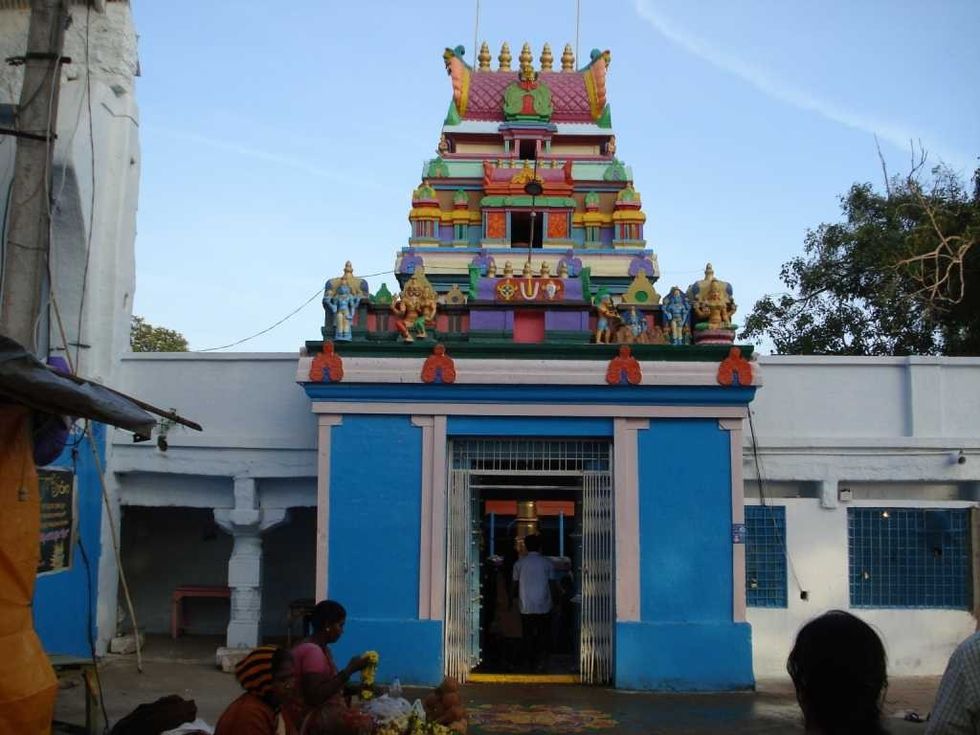1. Sonia Gandhi Temple, Telangana
Soon after Telangana was created as a separate state, Sonia Gandhi temple was created by some of the Congress leaders in Mallial town. In this temple, there is a stone idol of Sonia Gandhi posing as a goddess with lotus in one hand and a plate full of rice in another. The leaders also installed portraits of Indira Gandhi, Rajiv Gandhi and Rahul Gandhi on temple walls outside.
2. Bullet Baba Temple, Rajasthan
Om Banna also called Shri Om Banna or Bullet Baba is a shrine located in Pali district near Jodhpur, India. Here devotees worship a motorcycle of Om Singh Rathore who died in a crash after colliding with a tree. Hundreds of people turn up every day to pray for a safe journey. The motorcycle is 350cc Royal Enfield Bullet RNJ 7773.
3. Karni Mata Temple, Rajasthan
Karni Mata Temple is also known as the Temple of Rats, situated 30 km from Bikaner, in Rajasthan, India. The temple is famous for the approximately 25,000 black rats that live, and are revered in, the temple. These holy rats are called kabbas, and many people travel great distances to pay their respects.
4. Visa Temple, Hyderabad
Chilkur Balaji Temple, popularly known as Visa Temple, is an ancient Hindu temple of Lord Balaji on the banks of Osman Sagar in Hyderabad. It is believed that this temple makes your dreams come true if you wish to travel abroad. Most of the devotees visit this temple before their visa interview.
5. Gata Loops Bottle Temple, Ladakh
This temple was built for the Ghost of Gata loops in Manali Leh highway. People offer water bottles at the temple for a safe and sound journey. According to popular beliefs people who refuse to offer water were soon seen writhing with mountain sickness, and some also died due to it. So, people passing by make sure to offer water so as to have safe journey ahead.





